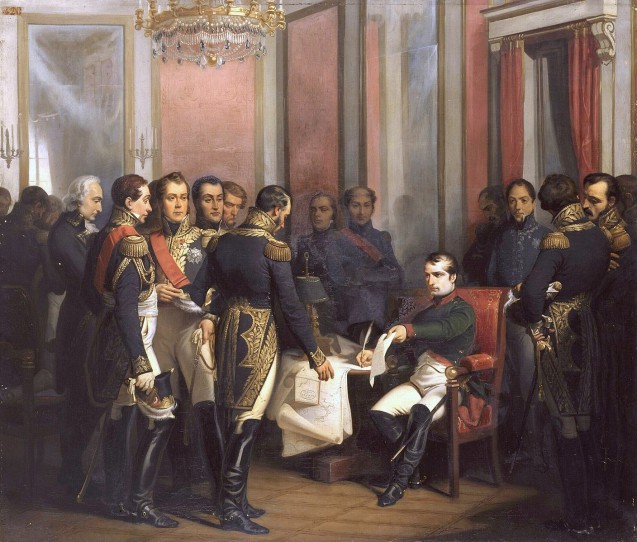On 4 and 6 April 1814, at Fontainebleau, the marshals Ney, Lefebvre, Macdonald and Moncey put pressure on Napoleon to agree to abdicate. The reasons they gave? Continuing the fight risked leading to greater misfortunes, indeed a civil war, and at the same time Paris had fallen, and the Senate had voted for the Emperor to be deposed. Napoleon threatened his subordinates, bidding them to “summon the army”. Ney is said to have retorted: “The army will not march!” And to Napoleon’s threat, “the army will obey me!”, Ney (so the story goes) threatened back: ‘the army will obey its commanders”. The result of this face-off (which was probably less violent than the legend would have us believe) was that Napoleon drew up a declaration in which he consented to abdicate. This episode is called “the betrayal of the marshals”. These men were undoubtedly thinking about their own futures in demanding his abdication, but we cannot deny their military insight, nor their understanding of the political situation, nor even a certain regard for French national interests. On the other hand, when Marshal Marmont defected with his army corps (on 5 April), he very probably hastened the Emperor’s fall. And since his title was Duc de Raguse, the French language coined a new verb “raguser”, in other words “to do a Duc de Raguse” or simply “to betray”.
Bullet Point # 23 – Did Napoleon’s Marshals betray him at Fontainebleau, in 1814?
Author(s) : LENTZ Thierry
Each “Bullet Point” will confront a question related to the First Empire. My remarks are designed to form the basis for debate and, I hope, research.
(Thierry Lentz, March 2019, translation Rory Maclean)

Painting by François Bouchot (1843), Palais de Versailles.

